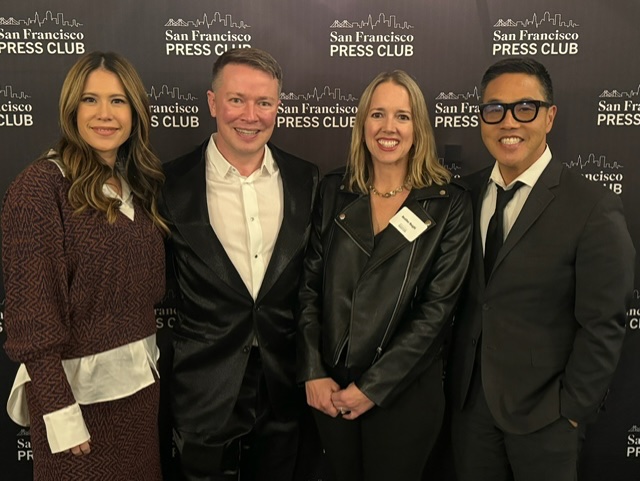
Editor’s note: This blog post and interview are part of Bospar’s new Media Mouth series, which provides industry insights from some of today’s top tech journalists and writers.
Chris Metinko is a senior reporter for Crunchbase News covering enterprise tech startups, innovation and the venture capital world. Before joining the Crunchbase News team, Chris was a senior reporter covering technology, media and telecommunications for Mergermarket and its sister service Dealreporter, where he focused on M&A, funding and the equity capital markets.
1. What do you look for in the stories you write?
I always try to weigh two things in my mind — would the readers find this interesting, and do I find this interesting? In a perfect world those are one and the same, but it does not always work out that way. If they don’t, I try to find unique angles or voices that would make it interesting to the reader or to me. Additionally, just trying to find something unique and unreported — or under-reported — is often the goal. I think it’s important when you sit down to write any story that you think about how to bring something new to the reader that engages them.
2. What are some key elements for a good story?
I think there are several facets to a good story. Obviously strong, accurate, fact-based reporting is the foundation for it all. Without that foundation, the house completely falls apart regardless of how riveting the story is. I like to talk to a lot of people — probably over-reporting — for any story. I think the more voices you bring into a story, the more interesting it is for readers to read and me as a reporter to write. That is also how you find unique angles and takes you would not find if you were just sitting down alone, writing an opinion piece or column. I also personally like a strong anecdote — something readers can relate to and connect with — that can bring a real-life face to a story about technology or venture capital.
3. What makes you feel proud about a story you write?
That is something that has changed over the quarter of a century I’ve been in journalism. The stories I’m most proud of are not usually ones I get the most emails about but rather the ones I take the most enjoyment in writing. Don’t get me wrong, I am happy for reader feedback and hope what I write resonates with them. However, the stories I find personal enjoyment and pride in are ones that I feel relay a story I find fascinating or something I myself find extraordinary. Sometimes that may not be what the reader will find fascinating — hopefully it is — but in the end I take most pride in telling a good story.
4. What are the current challenges you face in this media landscape?
To be honest, I think reporting has become easier and more challenging simultaneously. I think it is easier to find and contact sources now more than ever due to technology. Also, with so many news sources at your fingertips, it is effortless to consume more news and get new, fresh ideas for different takes on stories. At the same time, there never has been so much noise. There are more pitches, more stories that are just content fills and even flat-out inaccuracies you have to parse through to determine what is an actual story and what is basically garbage.
5. What advice do you have for individuals who pitch you?
Short and concise! If the subject in the email is 25 words, it gets deleted. If I cannot tell what the pitch is in the first two sentences, it gets deleted. If there is too much “tech speak,” it gets deleted. Just keep it simple. I have to wade through so much; there is just not enough time in the day for me to give a full reading to every email. If I had a pitch, I would pretend I was writing something for the briefing page in a newspaper or online. Quick and to the point.
6. What are some of the worst pitch practices you have seen?
I get irritated when I am being pitched something that I clearly do not write about. If a PR person cannot take the time to figure out what I report on, why should I take the time to read their email? In all honesty, I feel I am pretty lenient in the sense that I typically give the benefit of the doubt. I do not care about misspelling my name or a grammatical error in an email. It happens. But I do get agitated when someone tries to pitch me as knowing who I am and what I write, only to then pitch something that I obviously have no history writing about.



